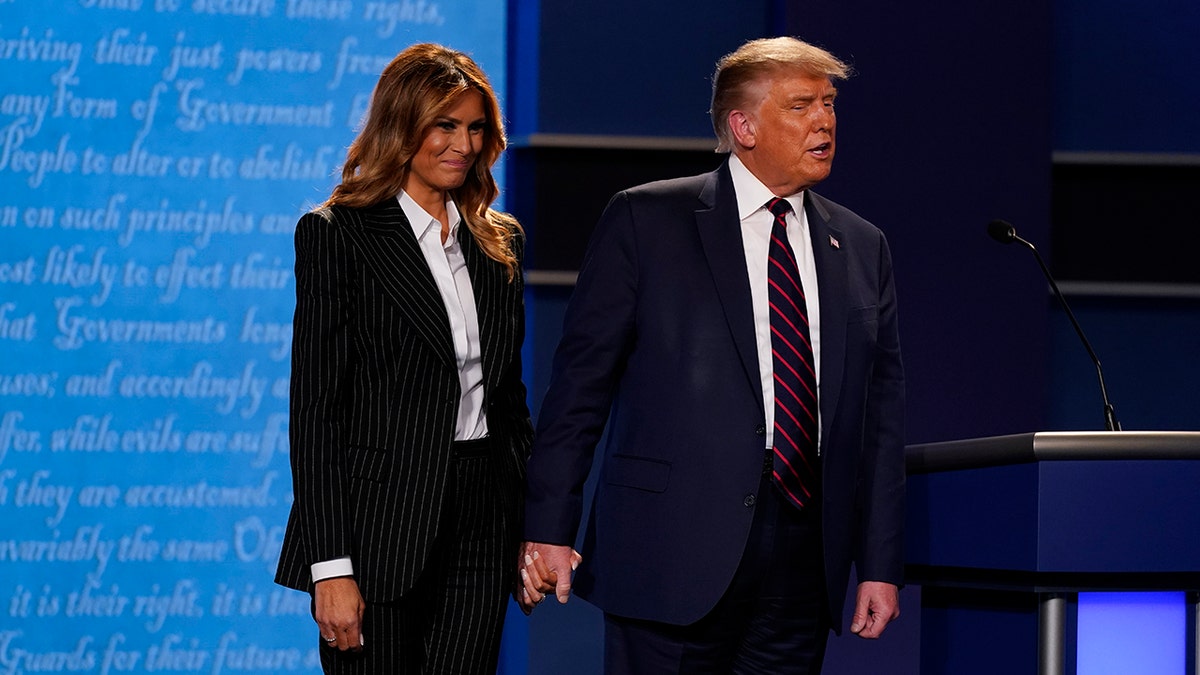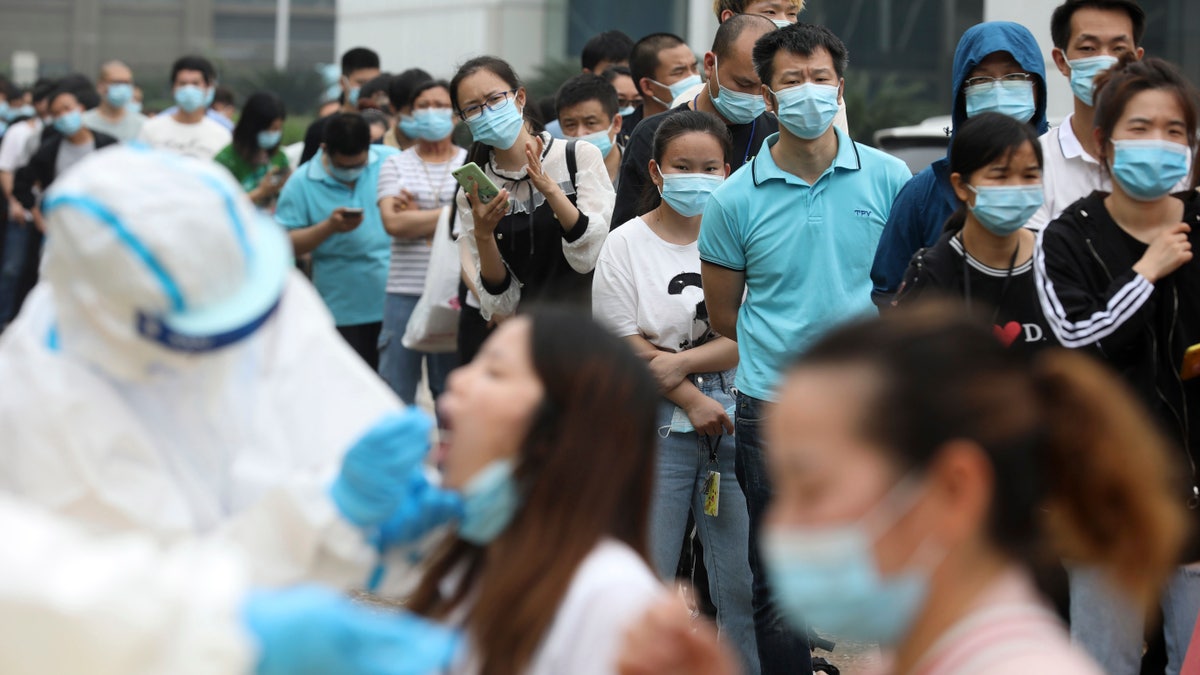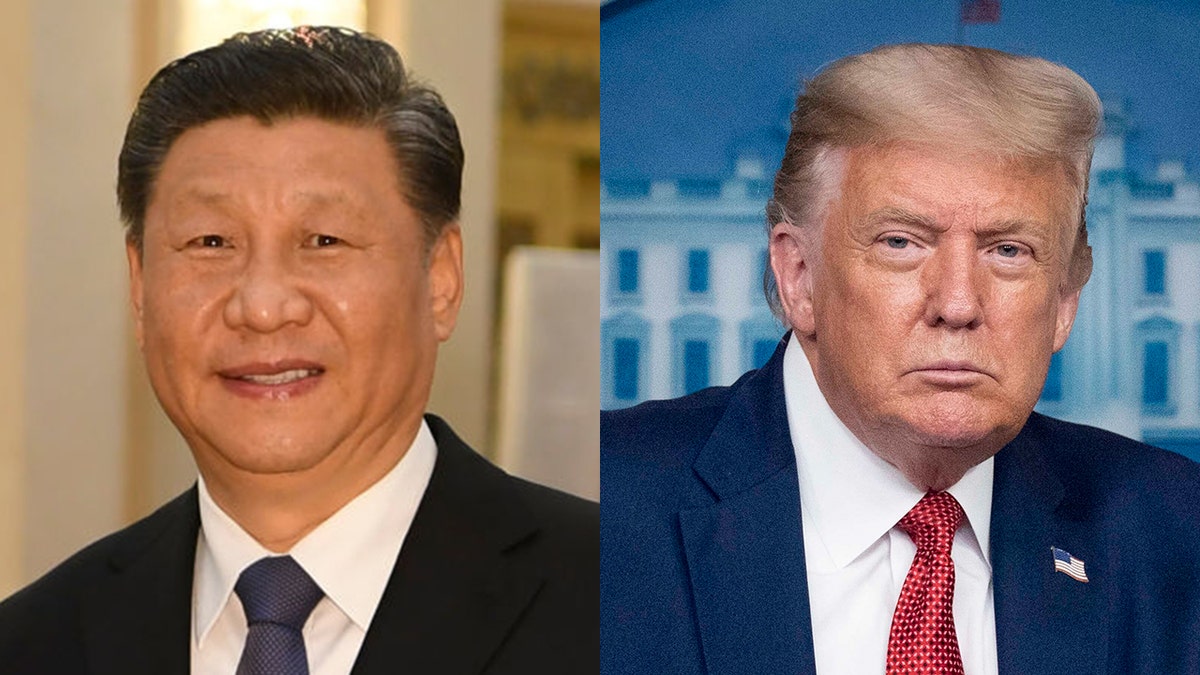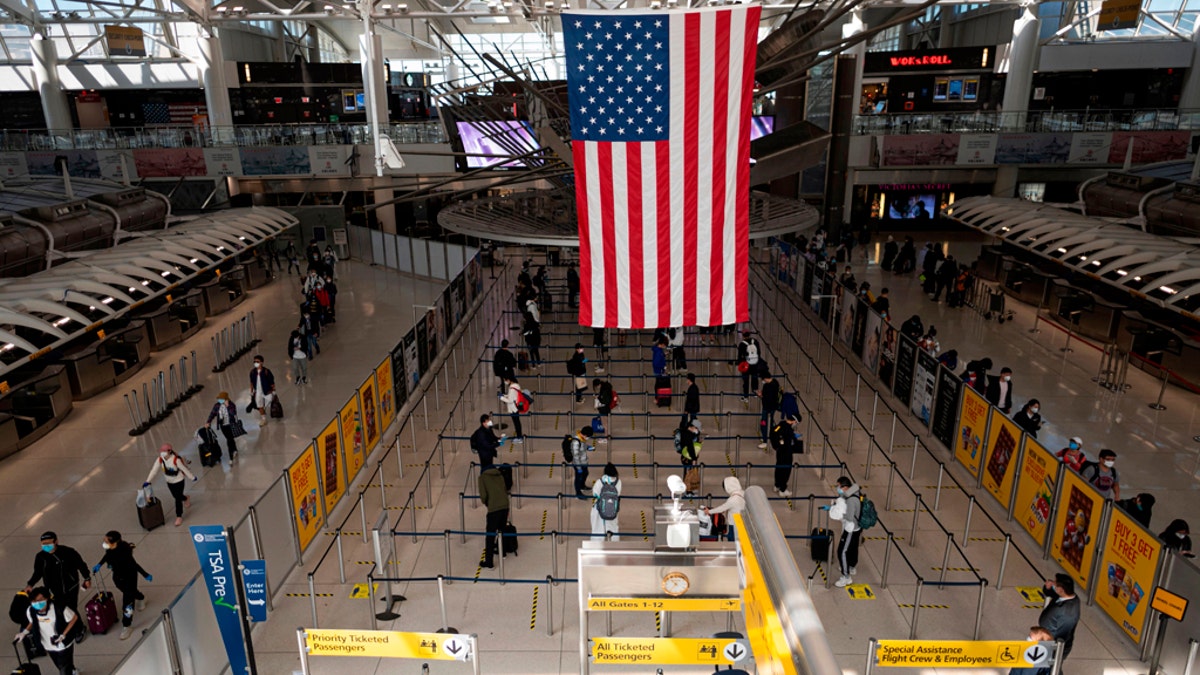The global fallout from the coronavirus pandemic, which includes 34.4 million people infected and over 1.2 million lives lost, economic devastation and countless lives turned upside down, took a dramatic twist with the announcement President Trump was ill with what he has referred to as the "China Virus."
Despite criticism from Trump and a handful of international leaders, Beijing has passed mostly unscathed by the world community even though it was slow to reveal to the world the true scale of the threat posed by the virus. The president and first lady Melania Trump's infections could change that, according to experts.
"The POTUS/FLOTUS diagnosis is unprecedented. Its impact will be immense – and is difficult to predict," Emily de La Bruyere, a senior fellow focused on China policy at the Foundation for Defense of Democracies (FDD), told Fox News. "What it should do is make that much more clear the degree to which China's improper handling of COVID has devastated the global order, and the domestic U.S. system."

President Donald Trump and first lady Melania Trump on stage at the end of the first presidential debate Tuesday, Sept. 29, 2020, at Case Western University and Cleveland Clinic, in Cleveland, Ohio. (AP Photo/Patrick Semansky)
Trump's own views are likely to only harden about China's early handling and well-documented coverup in the early stages of the virus's onslaught. Last month, he took center stage at the U.N. General Assembly (UNGA) with a pre-recorded message lambasting the Chinese Communist Party (CCP) and urging fellow world leaders to hold the government to account.
"The United Nations must hold China accountable for their actions," Trump said in his eight-minute speech. "In the earliest days of the virus, China locked down travel domestically while allowing flights to leave China and infect the world. China condemned my travel ban on their country, even as they canceled domestic flights and locked citizens in their homes."
WHITE HOUSE: TRUMP EXPERIENCING' MILD SYMPTOMS' AFTER POSITIVE CORONAVIRUS TEST, 'IN GOOD SPIRITS'
Trump also took aim at the World Health Organization (WHO), the United Nations-backed global health body.
"The Chinese government and the World Health Organization, which is virtually controlled by China, falsely declared that there was no evidence of human-to-human transmission," Trump said.
Indeed, some policy analysts also point fingers at the United Nations for failing to hold Beijing responsible for the damage the virus has caused.
Dean Cheng, a senior research fellow at the Heritage Foundation, observed that while a number of European and African nations have joined in the call for a WHO investigation into the outbreak and spread of the virus, "the Chinese influenced the measure so that it is a survey of global responses, rather than one focused on Chinese failings."
"No country has held China accountable. Some U.S. and European rhetoric have – but that rhetoric has not translated to action," de La Bruyere lamented. "Instead of being taken to task, Beijing is, as China's own policy documents put it, "seizing the opportunity" – setting international standards, shoring up influence over international organizations, investing in depreciated assets. And no one is conducting the necessary due diligence to uncover where and how this virus originated in China to make sure it doesn't happen again."
However, some U.S. lawmakers, mostly Republicans, are following the president's lead in urging answers from China.
Earlier this year, Sen. Josh Hawley, R-Mo., announced the Justice for Victims of Coronavirus Act, which would make the Chinese government liable for civil claims in U.S. courts. The act would additionally enable U.S. courts to freeze Chinese government assets and launch a task force to examine the government's role in the pandemic assault.
In addition, Rep. Dan Crenshaw, R-Texas, and Sen. Tom Cotton, R-Ark., introduced the Holding the Chinese Communist Party Accountable for Infecting Americans Act in a quest to amend the Foreign Sovereign Immunities Act (FSIA) to pave the way for litigation against a foreign state that deliberately conceals or distorts information about an international public health emergency.

In this Friday, May 15, 2020 file photo, people line up for coronavirus testing at a large factory in Wuhan in central China's Hubei province. In June 2020, China reported using batch testing as part of a recent campaign to test all 11 million residents of Wuhan, the city where the virus first emerged late in late 2019. (Chinatopix Via AP)
And Republican Senators Marsha Blackburn, from Tennessee, and Martha McSally, from Arizona, added to the push by putting forth the Stop China-Originated Viral Infectious Diseases Act of 2020, designed to carve out an exception to sovereign immunity if a foreign state is alleged to have discharged a biological weapon, whether intentional or accidental.
The FSIA – which essentially protects one foreign government from being sued by another under the guise of sovereign immunity – complicates efforts to directly hold Beijing to legal account, international legal experts say.
But the multitude of critical questions surrounding coronavirus, its origins and China's behavior regarding it, present new issues, say foreign policy experts.
"China's decision to withhold information from its own population should be examined. Similarly, it is simply unreasonable to believe Chinese disease statistics that suggest there were never more than some 40,000 cases in China, a nation with four times the population of the U.S.," Cheng said. "The fact that major leaders, including both Donald Trump and U.K. PM Boris Johnson, have been infected with COVID-19 highlights that no one, great or small, is safe from this disease. The Chinese government, with its poor handling of the initial outbreak, allowing it to expand rapidly beyond its borders, needs to be held accountable."
David Matas, a Canada-based international human rights lawyer who was appointed to the Canadian delegation to the United Nations Conference on the Establishment of an International Criminal Court, told Fox News that while he was unaware of any court, government, or legislative proceedings in any country being underway on these matters – a number of advocacy initiatives, including his own, are in the works.
"(The) attribution of responsibility and prevention are separate matters. On the contrary, one important aspect of prevention is the attribution of responsibility. As long as a self-serving coverup, denial, silencing of whistleblowers, and counterfactual narratives are cost-free, they will continue," Matas stressed. "The governmental, legislative, and legal systems need to attribute responsibility for the spread of COVID-19, not only to China but first and foremost to China. The recent diagnosis (of Trump) because of its visibility, brings that point home."
He also asserted that in law, the prosecution should not be selective.
"If it is, the very prosecution can be undermined. China, when it comes to self-serving coverup, denial, silencing of whistleblowers and counterfactual narratives, is worst and first, but not the only culprit," he said.
Nonetheless, scores of experts, medical professionals, and lawmakers have hit back at the Trump team for pointing fingers at China, claiming that what they see as the administration's own mismanagement and dishonest conduct – coupled with a refusal to initiate formal lockdowns or a mandated mask policy – are to blame for more than 208,000 deaths in the United States and 7.3 million infections.
The Xi Jinping-led Chinese government has also staunchly rebuffed the notion that Beijing is to blame for the pandemic.
Soon after Trump's blistering UNGA speech, Jinping pushed back at his counterpart's "American First" policy and used the spotlight to advocate for "international cooperation" to fight the pandemic.
"Major countries should act like major countries," Jinping said. "(This is an opportunity) to join hands and be prepared to meet even more global challenges."
The Chinese President also offered financial assistance for vaccine efforts – but in May, the CCP declined to contribute to a European Union initiative for an international vaccine cooperation fund, despite dispatching a representative to the talks.

The Xi Jinping-led government has also staunchly rebuffed the notion that Beijing owns any burden of obligation as it pertains to the international ramifications. (Xi Jinping (Getty) Donald Trump (AP))
Several attorneys in China have also blamed the U.S. for the pathogen, filing suits against U.S. government entities including the Centers for Disease Control and Prevention and the Department of Defense, seeking compensation for Washington "covering up the pandemic," harming Chinese businesses and individuals, and hurting its reputation via such references as "the Chinese virus."
But behind all the political posturing, legal bickering, and the sanitizing effect that facts and figures often bring, are the many human faces and many lives upended as a direct or indirect consequence of the disease.

Passengers, some wearing masks and protective gear, queue for their flight at Terminal 1 of John F. Kennedy Airport (JFK) amid the novel coronavirus pandemic on May 13, 2020 in Queens, New York. (Photo by Johannes EISELE / AFP) (Photo by JOHANNES EISELE/AFP via Getty Images)
Even in death, whether a person died as a consequence of coronavirus or something else, it has stripped all individuals of the dignity that once was pivotal in the mourning process.
"Grieving families have no closure. People come in one at a time in a mask to see someone else in a mask. This used to be a place for someone to get their emotions out, but we have lost that now," said Michael Stack, a funeral home assistant at Branchburg Funeral Home in N.J. "People are terrified of contracting the disease themselves, living in fear. And all we can do is take a person to a cemetery or crematorium, alone, where they see their loved one for the last time leave earth from afar."
CLICK HERE TO GET THE FOX NEWS APP
Some analysts contend that the president's positive diagnosis should spur an even more potent push for some level of accountability as to where, how, and why this health catastrophe began.
"The U.S. should continue to lead the international community in pressing Beijing for a full explanation of what happened and why," Cheng added. "Not just to ensure accountability but to avoid future pandemics."









































